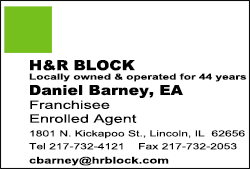|
 Air Line Pilots Association President Lee Moak sounded a
conciliatory note at discount carrier JetBlue, saying the union will
be focused on maintaining relations with management and advocating
for better airline industry policy in Washington rather than pushing
for pay hikes. Air Line Pilots Association President Lee Moak sounded a
conciliatory note at discount carrier JetBlue, saying the union will
be focused on maintaining relations with management and advocating
for better airline industry policy in Washington rather than pushing
for pay hikes.
But he signaled a tougher approach toward regional airlines, which
he said pay starting pilots as little as $16,500 a year, saying that
there would have to be a "market-based solution" at such carriers,
which feed passengers from smaller cities to larger hubs.
Coming amid relatively strong U.S. airline earnings, the yes vote by
71 percent of eligible JetBlue pilots had raised questions about
whether airline unions were positioning to win back wage and
benefits concessions they made over the last decade.
JetBlue shares are down 9.6 percent since Monday in a week that also
saw the airline post weak quarterly earnings and a Reuters report
that its flight attendants would seek to follow suit in holding a
vote to unionize.

But Moak signaled that a pay increase was not his primary goal.
"JetBlue is the same company today as it was on Monday," Moak said,
"Now that the pilots are organized, we're going to engage with the
company to ensure that it continues to be a great company and that
the culture continues."
That's not to say there won't be upward pressure on wages. Airline
unions have already made gains in recent years and that pressure is
likely to persist, particularly at the regional carriers, which have
been suffering from a pilot shortage.
Low pay is driving recently trained pilots away from those jobs.
Many are going to foreign carriers that pay more, he said.
A pilot who incurs $100,000 in debt in flight school "can't be
expected to go to work for $16,500 to $23,000 a year," he said.
"Especially when Middle Eastern airlines are in the U.S. recruiting
our best and brightest," he said.
"There is a market-based solution here."
Moak also said ALPA had a good track record in recent contracts with
Delta Air Lines <DAL.N> and United Airlines <UAL.N>. United declined
to comment. Delta did not immediately return a phone call seeking
comment.
[to top of second column] |

But the ALPA chief said he is also concerned about airlines staying
profitable as fuel prices rise and that government taxes on the
industry are at least as good targets as contract wins.
"We are identifying the issues that are going to affect the
profession for the next 20 years," he said, citing rising global
competition.
Since deregulation in 1978, the U.S. airline industry has
transformed through competition, bankruptcy and consolidation. The
field of major U.S. carriers has narrowed to just four, and airlines
have learned to control costs and capacity to stay profitable even
as fuel prices rose. That has put downward pressure on wages and
costs, and reduced ALPA membership.
In contrast with ALPA, some airline unions say it is time to recoup
those gains.
"When you have stability, that lends itself to profitability and
profitability lends itself to growth and security and stable careers
that the pilots will hopefully reap the benefit of in both salaries
and progression," Keith Wilson, president of Allied Pilots
Association, said in a phone interview.
"We think we have a little more leverage now because we are all on
the same page."
But Moak said the industry has not totally recovered and that
staying profitable in an era of increased taxation and high fuel
costs remains a big challenge for the industry.
(Additional reporting by Karen Jacobs; editing by Christian Plumb
and Frances Kerry)
[© 2014 Thomson Reuters. All rights
reserved.] Copyright 2014 Reuters. All rights reserved. This material may not be published,
broadcast, rewritten or redistributed.

 |